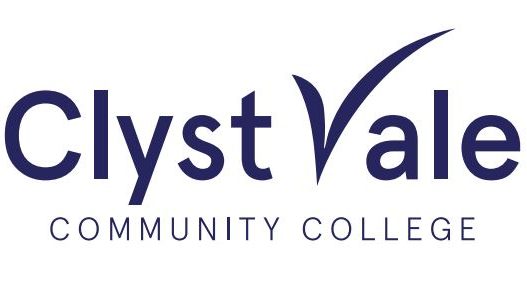CV&CC Update Tuesday 15th December
CV&CC Update
Tuesday 15th December
Positive result in Year 8: but NO NEED FOR ANYONE TO ISOLATE
A student in Year 8 has tested positive this evening (Tuesday) having displayed symptoms yesterday, Monday 14th. The student did not attend Clyst Vale on Monday. As his infectious period was Saturday and Sunday, there is no requirement for anyone to isolate. This is late news, literally. I will issue official communications tomorrow, Wednesday.
Last Week of Term
On Monday, just 12 students were withdrawn for “covid-security and protecting Christmas” reasons. Today (Tuesday) it was 29. The jump may have been because the new ten-day isolation period means that anyone infected on Monday would be able to end isolation on Christmas Eve.
I have been asked if any of my communications contain a “veiled hint” to send children in or keep them at home. The answer is neither. We are required by government to be fully open, so we are. Clyst Vale is a happy school (most of the time…) and we actually like our students (most of the time…), and it’s better for them to be here, so we are absolutely not discouraging attendance. However, if after weighing everything up, parents wish to withdraw their children, then we’re not going to give anyone a hard time about it (if we have safeguarding concerns for a child, we will follow it up). Otherwise, we will sympathise and understand, but we cannot approve: so legally, the absence will be unauthorised. I probably should add that at any other time of year, and not at Christmas in a pandemic, I would be arguing strongly for full attendance: I completely support the general principle that students should be in school.
Key Points to Remember, please
- Please do not send your child to school if they have covid symptoms.
- Please do not send your child to school if they have had symptoms and are waiting for a test result even if they seem better.
- If any member of a household has symptoms, everyone must stay away from school or work until the test result is known. If positive, everyone must isolate for 14 days from the start of symptoms or 14 days from the test date if there were no symptoms.
- Please tell us [student absence; AtHoS] if your child or household member has symptoms; test dates and results; dates you have been given for a return to school. We want to do our best to support your child and protect others, so we would prefer this information three times rather than not at all !
- Please use the number above for reporting an “out-of-hours” positive test result.
- Students should wear masks at all times unless exempt. Except lessons, when actually eating/drinking, and if outside AND at 1m+ distance from one another.
Mass Testing
- It’s been a busy day. The government have announced mass testing for schools “from January”. In reality, this means FE Colleges and secondary schools first. Further, it means weekly tests for staff, but “serial tests” for students who have been close contacts when there is a positive result. Nonetheless, this is very good news, which should reduce the number of isolations and definitely build confidence. There are quite a few unanswered questions: we cannot simply use our own teachers and support staff to do this, so staff will need to be recruited and trained, and it is not fully clear who has responsibility for this; and will schools be reimbursed fully and quickly for costs incurred ? Training is very important, as the tests are lateral flow tests; these have much better accuracy when the tester has been trained. Apologies for the lack of detail: this is hot off the press without prior warning. But it’s good news, and hasn’t reached us at 4p.m. on a Friday !
Situation Update
Student attendance is 93.2% for the term and 92% currently, which is really very good with the national figure for secondary schools dropping slightly to 80%. Devon as a whole is 91%, but that includes primaries. There are no current positive cases among students at Clyst Vale; and 10 in total since September. Staff absence still remains very low: this could well be because mask wearing and better hand hygiene is also preventing a range of other infections. We have two positive cases among support staff at present; there has been no risk to students and no need for anyone to self-isolate. Since September, there have also been a total of 32 positive tests among parents or household members resulting in students self-isolating for 14 days; 20 of these 32 have been since half-term.
Local Rates
Locally to us, numbers of cases are mostly falling. According to the NEU covid map for schools East Devon has remained steady at 111 cases per 100,000, although the BBC has 125 cases; however, Broadclyst, Cranbrook, Stoke Canon and area has fallen to 79/100,000; Exeter has fallen to 83/100,000 (NEU) or 90 (BBC), and Pinhoe and area is sharply down to 69. The national average for the BBC figures is 159/100,000 which is an increase on last week. Falling case numbers locally is clearly good news, and reduces risks in the immediate future, but there is no room for complacency.
Guidance, for Reference
Clinically Extremely Vulnerable: https://www.gov.uk/government/publications/guidance-on-shielding-and-protecting-extremely-vulnerable-persons-from-covid-19/guidance-on-shielding-and-protecting-extremely-vulnerable-persons-from-covid-19
NHS Covid-19 App
- The new NHS COVID-19 app is available to download.It’s free and will help stop the spread of coronavirus (COVID-19) by supporting the NHS Test and Trace service.
Symptoms (from the NHS web page)
The main symptoms of coronavirus are:
- a high temperature – this means you feel hot to touch on your chest or back (you do not need to measure your temperature)
- a new, continuous cough – this means coughing a lot for more than an hour, or 3 or more coughing episodes in 24 hours (if you usually have a cough, it may be worse than usual)
- a loss or change to your sense of smell or taste – this means you’ve noticed you cannot smell or taste anything, or things smell or taste different to normal
Most people with coronavirus have at least 1 of these symptoms.
What to do if you have symptoms
If you have any of the main symptoms of coronavirus:
- Get a test to check if you have coronavirus as soon as possible.
- Stay at home and do not have visitors until you get your test result – only leave your home to have a test.
Anyone you live with, and anyone in your support bubble, must also stay at home until you get your result.

